Budget 2023: What is Income Tax Exemption? IT deduction and rebate explained
Budget 2023: We will discuss the definition of Income Tax Exemption, IT deduction and IT rebate and the factors pertaining to them.

Budget 2023: Income tax filing involves various deductions, exemptions and rebates, and a major share of the workforce finds it difficult to fathom the jargons and abbreviations involved. Even the simple understanding of these terms is significant for filing an Income Tax Return.
Here we discuss the definition of Income Tax Exemption, IT deduction and IT rebate and the factors pertaining to them —
Budget 2023: What are Tax Exemptions?
A tax exemption excludes certain income, revenue, or even taxpayers from tax altogether. The majority of taxpayers are eligible for a number of exemptions that can be used to lower their taxable income, while some people and organisations are fully free from paying taxes.
In Budget 2022, Finance Minister Nirmala Sitharaman had proposed an extension in the eligibility for claiming tax holiday as well as exemption in capital gains investing in startups by one year, which ended in March 2022.
Budget 2023: What are the various sections of tax exemption?
Here is a list of areas that are exempted from tax
Also Read: Budget 2023: Why agri stocks are in focus prior to Budget
|
Section |
Nature of Income |
|
10(1) |
Agricultural income |
|
10(2) |
Share from income of Hindu Undivided Family |
|
10(2A) |
Share of profit from firm whose taxes are filed separately |
|
10(3) |
Income received in a casual form not exceeding Rs.5,000 and in case of horse race winnings, it should not exceed Rs.2,500 |
|
10 (4) |
Interest from notified bonds or NRE account |
|
10 (6) |
Income of foreign citizens like ambassadors and diplomats of foreign countries |
|
10 (7) |
Benefits received while serving the Indian government head |
|
10 (8) |
Payments from foreign governments for taxes due in India, so long as they fall within programmers for technical cooperation. If the government pays the tax on the income, the exemption also applies to income received outside of India. |
|
10 (10) |
Gratuity received by a government servant on retirement or death |
|
10 (10A) |
Commuted pension received from the government or statutory body |
|
10 (10AA) |
Leave encashment for central or state government employee |
|
10 (10B) |
Commission received by employees for retrenchment |
|
10(10D) |
Receipt from life insurance policy |
|
10(16) |
Scholarship to meet cost of education |
|
10(17) |
Allowances of MP and MLA. MLA's allowance should not exceed Rs.600 per month |
|
10(17A) |
Awards and rewards by central and state government, from approved awards by others and the approved rewards from central and state government. |
|
10 (18) |
Pension received gallantry award winners |
|
10 (19) |
Pension received by the family of armed forces personnel |
|
10(26) |
Income of members of scheduled tribes of North Eastern States or Ladakh region. The income should be arising from those regions itself. |
|
10(26A) |
Income of Ladakh resident. His income can arise in Ladakh or outside India. |
|
10(30) |
Subsidy from Tea Board under approved scheme |
|
10(31) |
Subsidy from any concerned board under approved scheme of replantation |
|
10(32) |
Income of minor clubbed with individual to a maximum of Rs.1,500 |
|
10(33) |
Dividend earned from Indian companies, income from Unit Trust of India, Mutual funds and income from venture capital. |
|
10(A) |
Profits earned in free trade zones, electronic hardware technology park or on software technology park for up to 10 years. |
|
10(B) |
Profits form complete export oriented undertakings, manufacturing articles or computer software for 10 years. |
|
10(C) |
Profits from newly established undertakings in IIDC or IGC in the North-Eastern region for up to 10 years. |
|
10(15)(i)(iib)(iic) |
Interests, premiums, redemptions or any other payments that you get from securities, bonds, capital investment bonds, relief bonds, etc. that are notified. The exemption limit is to the extent that is notified. |
|
10(15)(iv)(h) |
Interest paid by public sector company on its bonds and debentures. |
|
10(15)(iv)(i) |
Interest that the government pays on the deposits made by employees of central and state government or public sector employees for their retirement under the notified scheme. |
|
10(15)(vi) |
Interest received on notified gold deposit bonds. |
|
10(15)(vii) |
Interest received on notified local authorities' bonds |
|
10(5) |
Leave travel assistance or concession received. The amount should not exceed the amount payable by the central government to its employees. |
|
10(5B) |
Remuneration received by technicians who have specialised knowledge in specific fields. Their service must commence after 31.3.93 and their tax should be paid by the employer. The exemption limit is in respect of tax paid by employer for a period of up to 48 months. |
|
10(7) |
Allowances and perquisites that the government provides to citizens of India who provide their services abroad. |
|
10(8) |
Remuneration received from foreign governments for duties in India provided it is under cooperative technical assistance programmes. You also get exemption for income arising outside India provided that the tax on that income is paid by the government. |
|
10(10) |
Death-cum retirement gratuity from government, payment made under Gratuity Act, 1972 the amount must be as per section(2), (3) and (4) of that Act and up to one and half month's salary for each completed year of service. |
|
10(11) |
Payment received under Provident Fund act, 1925 and other central government notified bonds. |
|
10(12) |
Exempts the accumulated balance payable to an employee participating in the ‘Recognized Provident Fund’. |
|
10(13) |
Payments received from approved superannuation fund. |
|
10(13A) |
House rent allowance, the exemption is either the least of actual allowance, actual rent in excess of 10% of the salary or 50% of salary in Mumbai, Chennai, Delhi and Calcutta and 40% in other places. |
|
10(14) |
Prescribes special allowance or benefits granted to meet expenses that incur in performing your duties, the exemption is granted to the extent of expenses that actually incur. |
|
10(18) |
Pension that includes family pension of recipients of notified gallantry awards. |
Budget 2023: What is Income Tax Deduction?
In India there are 19 ways in which tax deductions can be availed. Tax deductions are ways to reduce one’s taxable income arising from various investments and expenses incurred by a taxpayer. It is a kind of tax benefit which helps taxpayers save tax. However, the amount of tax one can save depends on the type of tax benefit they claim.
Budget 2023: Various Types of Tax Deductions in India
- Public Provident Fund (PPF)
- Life Insurance Premiums
- National Saving Certificate (NSC)
- Bank Fixed Deposits (FDs)
- Senior Citizen Savings Scheme (SCSS)
- Post Office Time Deposit (POTD).
- Unit-linked Insurance Plans (ULIP)
- Home Loan EMIs
- Mutual Funds & ELSS
- Stamp Duty and Registration Charges for a Home
- Retirement Savings Plan
- Tuition Fees
- Medical Insurance Premiums
- Infrastructure Bonds
- Charitable Contribution
- Treatment of Disabled Dependents
- Deduction for Preventive Health Check-ups
- Interest Paid on Education Loan
- Deduction on House Rent Paid
Also Read: Budget 2023: Experts eye big push for infrastructure sector from government
Budget 2023: TDS Exemption
TDS or Tax Deducted at Source is deducted by the first party who pays to the second party, whether salary or a professional fee. Banks also deduct tax from payments of interest at the source. The money is subsequently credited to one’s tax account after the first party deposits the tax with the government. If the TDS is greater than one’s tax, they can either claim it against the amount of tax required to pay or request a refund.
Budget 2023: What is an Income tax rebate?
An income tax rebate is a refund that a taxpayer is eligible for if the taxes paid by them exceed their tax liability. In simple terms, taxpayers can avail a refund on tax money at the end of every financial year if their tax liability is less than that of the amount paid. Taxpayers need to file for Income Tax Rebate within a specified period if they want to claim the income tax refund.
Budget 2023: Types of Income Tax rebate
- Interest on Education Loan - Section 80EE
- Deduction for Scientific Research - Section 80GGA
- Savings Bank Interest - Section 80TTA
- Capital Gains Rebate - Section 54
- Capital Gains Rebate - Section 54 EC
- Home Loan Interest Payment - Section 24B
- House Rent Allowance Exemption - Section 10(13A)
Click here to get more stock market updates I Zee Business Live
Get Latest Business News, Stock Market Updates and Videos; Check your tax outgo through Income Tax Calculator and save money through our Personal Finance coverage. Check Business Breaking News Live on Zee Business Twitter and Facebook. Subscribe on YouTube.
RECOMMENDED STORIES
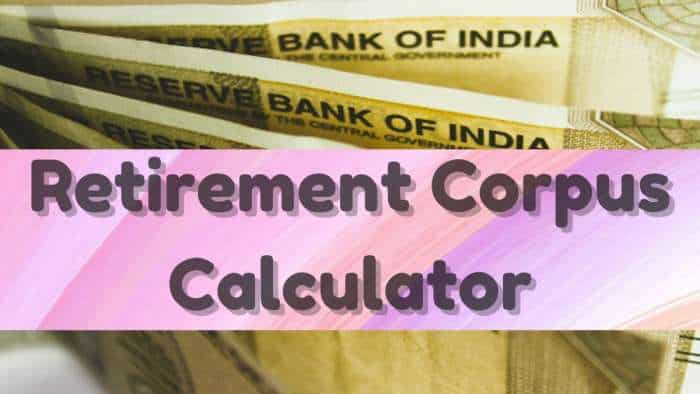
Retirement Planning: How one-time investment of Rs 10,00,000 can create Rs 3,00,00,000 retirement corpus

New Tax Regime vs Old Tax Regime: How much tax will you pay if your annual income is Rs 5 lakh, Rs 9 lakh, Rs 13 lakh, Rs 19 lakh, and Rs 25 lakh?

Power of Rs 8,000 SIP: In how many years you can build Rs 9 crore corpus with just Rs 8,000 monthly investment
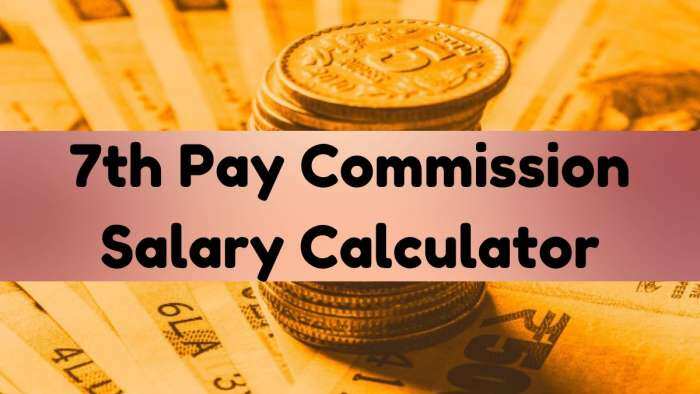
Monthly Salary Calculations: Is your basic salary Rs 24,500, Rs 53,000, or Rs 81,100? Know how much total salary central government employees may get
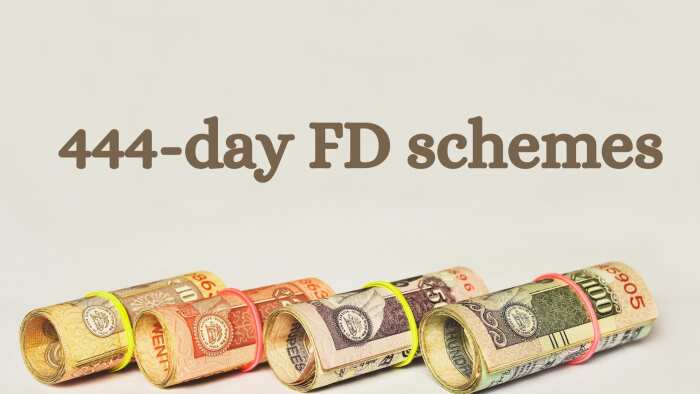
444-Day Special FDs: How much will you earn by investing Rs 5 lakh and Rs 7 lakh in SBI, Indian Overseas Bank, and Federal Bank fixed deposit schemes?

Power of Compounding: How long it will take to build Rs 8 crore corpus with Rs 7,000, Rs 11,000 and Rs 16,000 monthly investments
01:33 PM IST






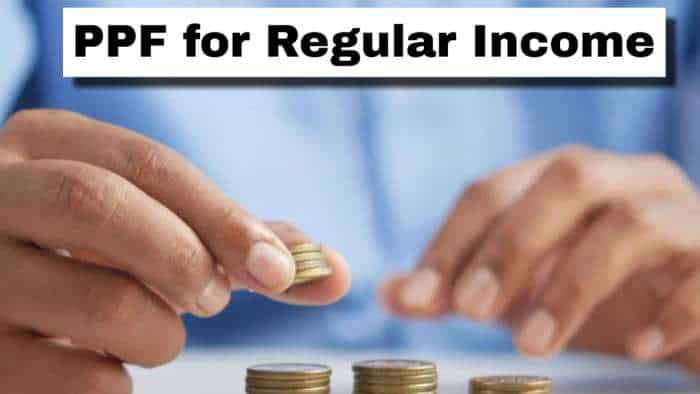



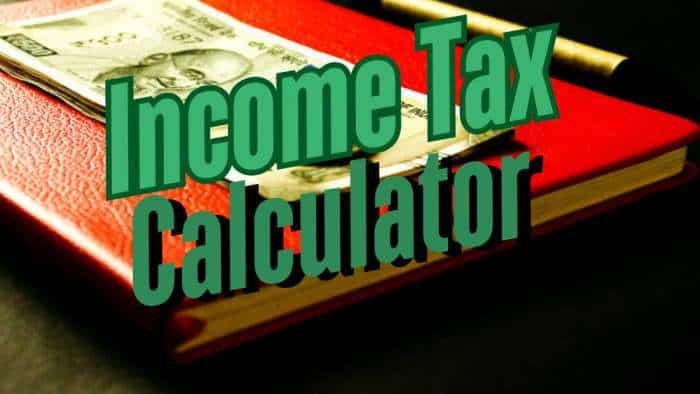
 Budget 2024: Welfare of poor, women, youth, farmers government highest priority
Budget 2024: Welfare of poor, women, youth, farmers government highest priority Income tax: What are the 6 common tax-saving mistakes that can be avoided
Income tax: What are the 6 common tax-saving mistakes that can be avoided Punjab Finance Minister tables state budget for 2023-24
Punjab Finance Minister tables state budget for 2023-24 RuPay, UPI technologies are India's identity, says PM Modi
RuPay, UPI technologies are India's identity, says PM Modi  Chhattisgarh Budget 2023: Bhupesh Baghel to present last Budget ahead of Assembly election
Chhattisgarh Budget 2023: Bhupesh Baghel to present last Budget ahead of Assembly election